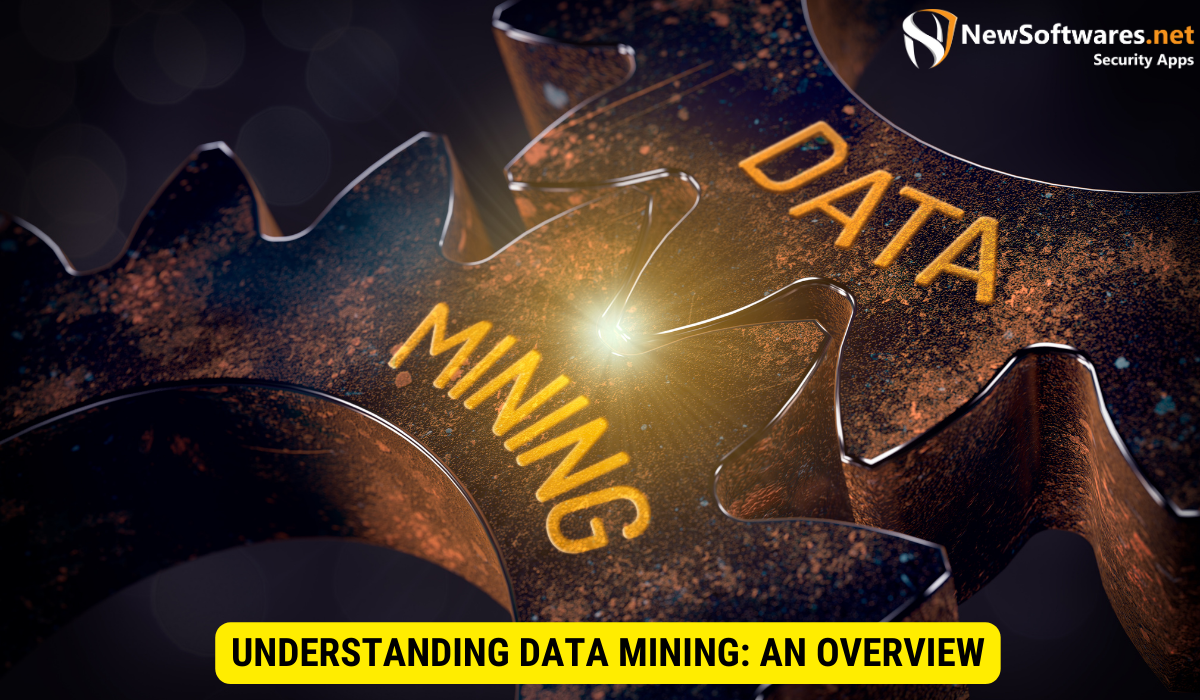To safeguard privacy against data mining, employ privacy tools, encryption, and understand your data rights under privacy laws.
Data mining is a powerful tool used by companies to extract valuable information from vast amounts of data. While it has its benefits, such as improving product recommendations and personalizing user experiences, it also raises concerns about privacy. Together, we will explore the world of data mining, explore its impact on privacy, and provide practical steps to safeguard your personal information.
Understanding Data Mining: An Overview

Data mining is the process of analyzing large datasets to discover patterns, correlations, and insights. It involves using mathematical algorithms and statistical techniques to extract meaningful information. Companies employ data mining to gain a competitive edge, make informed business decisions, and enhance customer experiences.
Data mining has become an essential tool in various industries, including finance, healthcare, retail, and marketing. By uncovering hidden patterns and trends, organizations can identify opportunities for growth, optimize their operations, and improve overall efficiency. For example, a retail company can use data mining to analyze customer purchasing behavior and tailor their marketing strategies accordingly, resulting in higher customer satisfaction and increased sales.
The Basics of Data Mining
Data mining utilizes a variety of methods, including classification, regression, clustering, and association. Each method serves a specific purpose in extracting valuable insights from data.
Classification involves categorizing data into predefined classes or groups based on specific attributes. This method is commonly used in spam email filtering, fraud detection, and customer segmentation. By classifying data, organizations can better understand their target audience and customize their offerings accordingly.
Regression, on the other hand, focuses on establishing relationships between variables to predict future outcomes. This method is widely used in financial forecasting, demand planning, and risk analysis. By analyzing historical data and identifying patterns, organizations can make accurate predictions and mitigate potential risks.
Clustering is a method that groups similar data points together based on their characteristics. It is commonly used in market segmentation, anomaly detection, and image recognition. By clustering data, organizations can identify distinct customer segments, detect outliers, and improve decision-making processes.
Association mining aims to discover relationships and associations between different items or events. It is often used in market basket analysis, where organizations analyze customer purchase patterns to identify product associations and optimize product placement strategies. By understanding these associations, organizations can enhance cross-selling opportunities and improve overall customer satisfaction.
How Data Mining Impacts Privacy
While data mining brings several benefits, it also poses significant privacy risks. As companies collect and analyze vast amounts of personal information, concerns arise about the misuse and mishandling of that data. Data breaches and unauthorized access could lead to identity theft, financial fraud, or other forms of privacy invasion.
Additionally, data mining can result in the creation of intricate profiles that capture our online habits, preferences, and behaviors. These profiles can be used to target individuals with personalized advertisements or manipulate their decision-making processes, raising ethical concerns.
To address these privacy concerns, organizations must adhere to strict data protection regulations and implement robust security measures. They must ensure that data is anonymized and encrypted, and that access to sensitive information is limited to authorized personnel only. Furthermore, organizations should be transparent about their data collection and usage practices, obtaining explicit consent from individuals before collecting their personal information.
As the field of data mining continues to evolve, striking a balance between reaping the benefits of data analysis and safeguarding individual privacy remains a critical challenge. It requires ongoing efforts from both organizations and regulatory bodies to establish guidelines and frameworks that protect individuals’ rights while enabling the responsible use of data for innovation and progress.
The Importance of Privacy in the Digital Age
In today’s society, personal information has become a valuable commodity. It is crucial to understand why privacy matters and how it influences our lives in the digital age.
In an increasingly interconnected world, the role of personal information has become more prominent than ever before. Our names, addresses, social media activity, and communication history are scattered across various platforms and databases, forming a digital footprint that can be easily accessed and analyzed. This information, when combined and scrutinized through data mining techniques, can reveal intimate details about our lives, such as our habits, preferences, and even our vulnerabilities.
The Role of Personal Information in Today’s Society
Personal information plays a multifaceted role in today’s society. On one hand, it allows for personalized experiences and convenience. For instance, when we shop online, our previous purchase history and browsing behavior are used to recommend products that align with our interests. Similarly, social media platforms use our personal information to curate our news feeds, showing us content that is tailored to our preferences.
On the other hand, the widespread availability and accessibility of personal information pose significant risks. As our lives become increasingly digitized, the potential for data breaches and unauthorized access to our personal information grows. This not only puts our privacy at stake but also exposes us to various forms of cybercrime.
Potential Risks of Data Exposure
Exposing personal data through data mining can have severe consequences. One of the most significant risks is identity theft, where criminals can impersonate us and cause significant harm. With access to our personal information, they can open credit accounts, make fraudulent purchases, and even commit crimes in our name, leaving us to deal with the aftermath.
Moreover, data exposure enables targeted marketing and manipulation. Companies and advertisers exploit our personal information to influence our choices and behaviors. They analyze our preferences, interests, and online activities to create personalized advertisements that are specifically designed to appeal to us. This targeted advertising can be incredibly persuasive, subtly shaping our decisions and actions without us even realizing it.
Furthermore, the misuse of personal information can have far-reaching societal implications. Governments and organizations can use data mining techniques to monitor and track individuals, potentially infringing on civil liberties and violating privacy rights. This raises concerns about surveillance and the erosion of personal freedom in the digital age.
In conclusion, privacy is of utmost importance in the digital age. The vast amount of personal information available and the potential risks associated with its exposure highlight the need for robust privacy measures. As individuals, it is essential to be aware of the implications of sharing personal data and take steps to protect our privacy. Likewise, governments and organizations must prioritize privacy rights and enact stringent regulations to safeguard personal information in the digital realm.
Common Data Mining Techniques Used by Companies
Understanding the common data mining techniques used by companies is essential in safeguarding your privacy.
Tracking Online Behavior
One common technique employed by companies is tracking online behavior. Websites and online platforms use cookies and other tracking mechanisms to record our browsing habits, such as the websites we visit, the links we click, and the products or services we interact with. This information is then used for targeted advertising and personalized recommendations.
Social Media Data Harvesting
Social media platforms have become gold mines of personal information. Companies gather data from our posts, likes, comments, and interactions to gain insights into our lives, preferences, and social connections. This information is often used for advertising purposes and can be shared with third-party entities.
Practical Steps to Protect Your Privacy

Now that we understand the impact of data mining on privacy, let’s explore practical steps to safeguard your personal information.
Using Privacy Tools and Settings
Start by reviewing and adjusting the privacy settings on your devices, apps, and online accounts. Enable features like two-factor authentication, strong passwords, and automatic software updates. Regularly review app permissions and limit data sharing with third-party applications.
The Role of Encryption in Privacy Protection
Encryption is a powerful tool that can help protect your data from unauthorized access. Use secure communication channels, such as encrypted messaging apps or virtual private networks (VPNs), to safeguard your online interactions. Encrypt sensitive files and consider using encrypted storage solutions to protect your data from prying eyes.
Legislation and Your Rights
Understanding data protection laws and your rights is crucial in this age of data mining.
Understanding Data Protection Laws
Familiarize yourself with the data protection laws applicable in your region. These laws aim to regulate the collection, processing, storage, and sharing of personal data. They provide individuals with rights, such as the right to access their data, the right to rectify inaccuracies, and the right to request data deletion.
How to Exercise Your Data Rights
Take advantage of your data rights by exercising them when necessary. If you suspect your personal data has been mishandled or misused, file a complaint with the appropriate regulatory authorities. Stay informed about privacy policies and data practices of the platforms and services you use, and choose privacy-conscious alternatives whenever possible.
